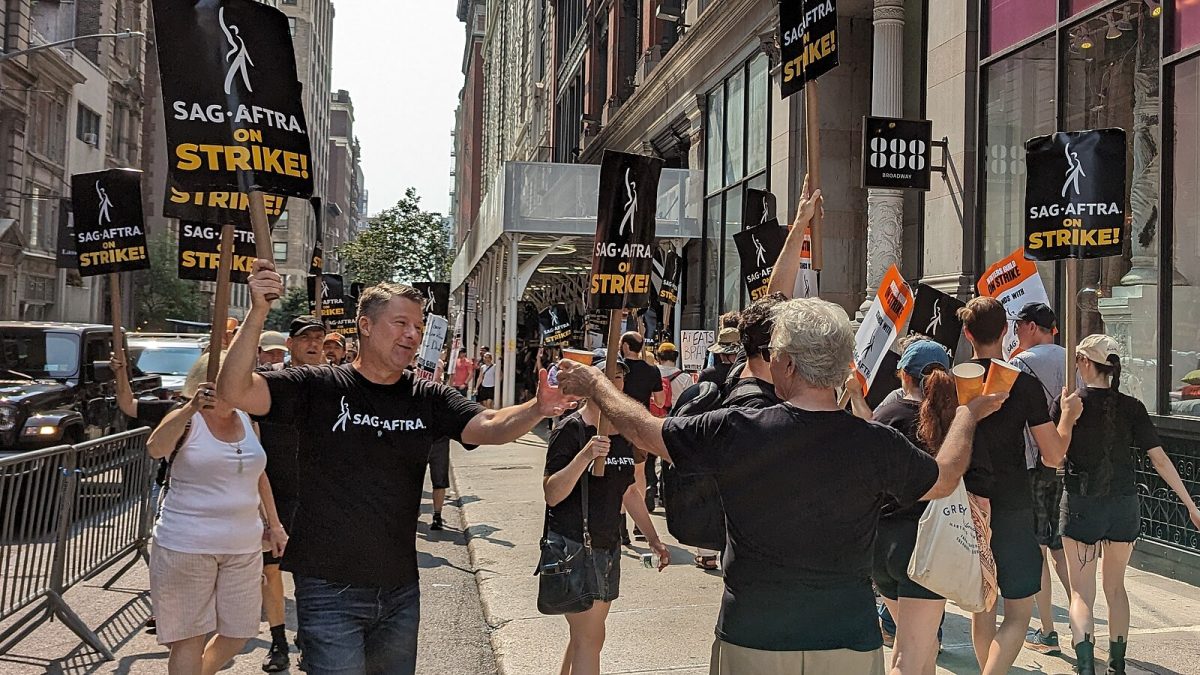After 118 days, the longest actors strike in Hollywood history has come to an end.
SAG-AFTRA (Screen Actors Guild – American Federation of Television and Radio Artists), an American labor union made up of 160,000 actors and other media professionals, initiated the strike on July 14, 2023, outlining several reasons for their decision. SAG-AFTRA has argued that “compensation has been undercut by inflation and by streaming” and “unregulated use of artificial intelligence threatens the very voices and likenesses that form the basis of professional acting careers.”
The emergence of AI as a concern in the modern Hollywood industry added a new and previously undiscussed dimension to the negotiations. Actors fear AI technology may be used to generate their image for multiple scenes without fair compensation.
November marked the fourth month without a deal between SAG-AFTRA and the Alliance of Motion Picture and Television Producers (AMPTP). The strike initially aligned with that of the Writers Guild of America, who began striking in May, marking the first time in over 60 years that both Hollywood writers and actors struck simultaneously.
The strike prevented SAG-AFTRA members from participating in on-camera work for AMPTP-affiliated productions, including acting, dancing, singing, and various off-camera and promotional activities. Throughout the strike, union members gathered outside major film studios and offices, such as Netflix headquarters, with hundreds gathering in picket lines to protest.
This disruption to numerous television and movie productions significantly impacted the economy of California. According to Reuters, “preliminary estimates place the economic cost at more than $6 billion in lost wages and business impacts across California and other production-heavy states.” The AMPTP acknowledged these impacts in a statement saying, “The Union has regrettably chosen a path that will lead to financial hardship for countless thousands of people who depend on the industry.”
On September 27, 2023, the WGA (Writer’s Guild of America) voted to end their 4-month strike after agreeing on an improved contract with the AMPTP, while SAG-AFTRA members remained on the picket lines. The writers’ contract included benefits such as a minimum pay increase of 5% and AI regulations.
It wasn’t for another month and a half that SAG-AFTRA announced a tentative agreement with the AMPTP on November 9th. The terms of the deal include a 7% minimum wage increase and what the union’s President Fran Drescher called “the most progressive AI protections ever written.” Although the agreement awaits final approval from the union’s national board, the strike has come to an official end, with picket locations being suspended.
The resolution of the 118-day strike by SAG-AFTRA, and the 146-day strike by the WGA, mark a pivotal moment in Hollywood’s labor history. The coordinated efforts of actors, writers, and other industry professionals resulted in an agreement with substantial wage increases and groundbreaking AI protections, reflecting a significant step toward a more equitable and forward-looking entertainment industry. As the strike officially concludes, the focus now shifts to the impact of these reforms and the restarting of Hollywood productions.


